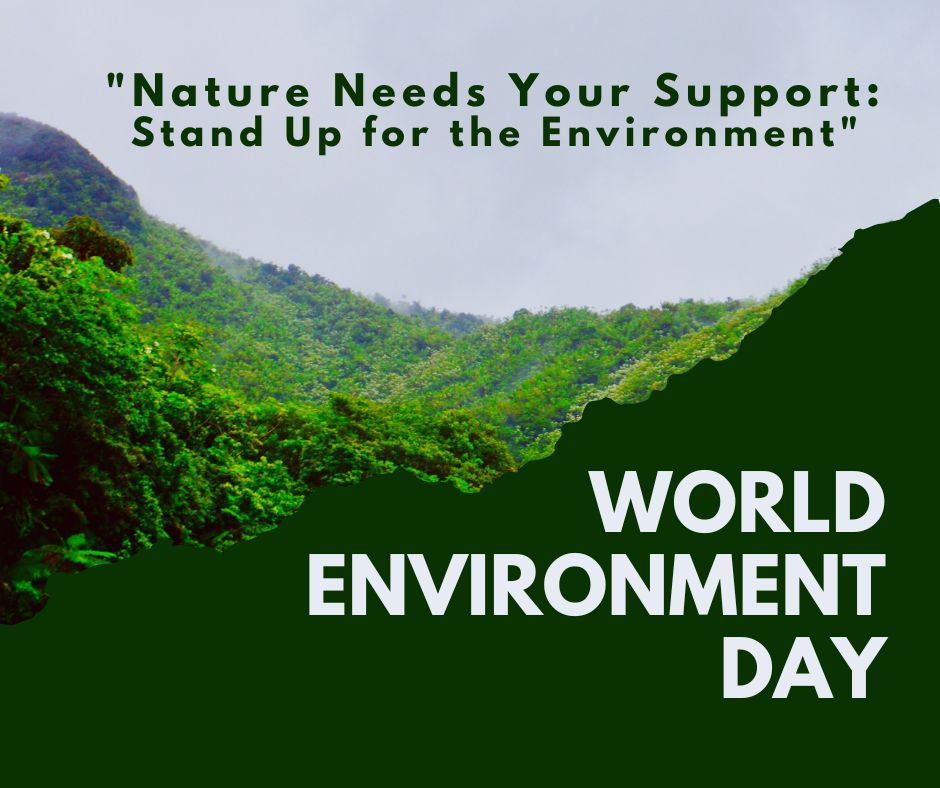World Environment Day, celebrated annually on June 5th, provides a significant opportunity to reflect on the state of our planet and the urgent need for sustainable practices. This global event, established by the United Nations, brings attention to the profound impact of human activities on the environment. As we commemorate this occasion, let’s delve into key statistics that highlight the pressing environmental challenges we face and the importance of collective action.
The Significance of World Environment Day: Mobilizing for a Sustainable Future
World Environment Day serves as a powerful catalyst for global mobilization towards environmental protection. It encourages individuals, communities, governments, and organizations to unite and address the critical issues plaguing our planet. This annual event raises awareness, promotes sustainable practices, and stimulates action to safeguard the Earth’s natural resources and ecosystems.
The Impact of Human Activities: Statistics That Demand Our Attention
Climate Change: According to the Intergovernmental Panel on Climate Change (IPCC), human activities have caused the global average temperature to rise by approximately 1.1 degrees Celsius since the pre-industrial era. If left unchecked, this trend could lead to catastrophic consequences, such as more frequent and intense heatwaves, droughts, floods, and rising sea levels.
Pollution: Every year, an estimated 8 million metric tons of plastic enter our oceans, endangering marine life and ecosystems. Air pollution, primarily caused by the burning of fossil fuels, leads to the premature deaths of 7 million people worldwide annually. Moreover, water pollution from industrial waste and agricultural runoff poses significant risks to human health and freshwater ecosystems.
Deforestation: Approximately 18 million acres (7.3 million hectares) of forests are lost each year, contributing to about 12-15% of global greenhouse gas emissions. This destruction disrupts the delicate balance of ecosystems, threatens biodiversity, and reduces the Earth’s capacity to absorb carbon dioxide.
Loss of Biodiversity: Currently, around 1 million plant and animal species are at risk of extinction, primarily due to habitat destruction, climate change, pollution, and unsustainable exploitation. The loss of biodiversity undermines the stability of ecosystems, weakens natural resilience to environmental changes, and jeopardizes the provision of vital ecosystem services.
Taking Action: Working Towards a Sustainable Future
World Environment Day calls for transformative action to address these environmental challenges. Here are some key areas where collective efforts can make a significant impact:
Transition to Renewable Energy: Increasing the share of renewable energy sources in the global energy mix is crucial. According to the International Renewable Energy Agency (IRENA), renewable energy accounted for nearly 80% of global power expansion in 2020, signaling a promising shift towards a low-carbon future.
Sustainable Consumption and Production: Adopting sustainable practices, such as reducing waste, promoting circular economies, and embracing eco-friendly technologies, can mitigate the adverse effects of overconsumption and resource depletion.
Conservation and Reforestation: Protecting existing natural habitats, including forests, wetlands, and coral reefs, is vital for preserving biodiversity and mitigating climate change. Additionally, reforestation efforts play a crucial role in sequestering carbon dioxide and restoring ecosystem functionality.
Advocacy and Policy Support: Raising awareness about environmental issues and advocating for policies that prioritize sustainability can generate significant change. Engaging in public discourse, supporting environmental organizations, and holding decision-makers accountable contribute to creating a more sustainable future.
Conclusion: Harnessing the Power of World Environment Day
World Environment Day serves as a powerful reminder of our shared responsibility to protect and preserve our planet. The statistics surrounding climate change, pollution, deforestation, and biodiversity loss demand our attention and action. By mobilizing individuals, communities

